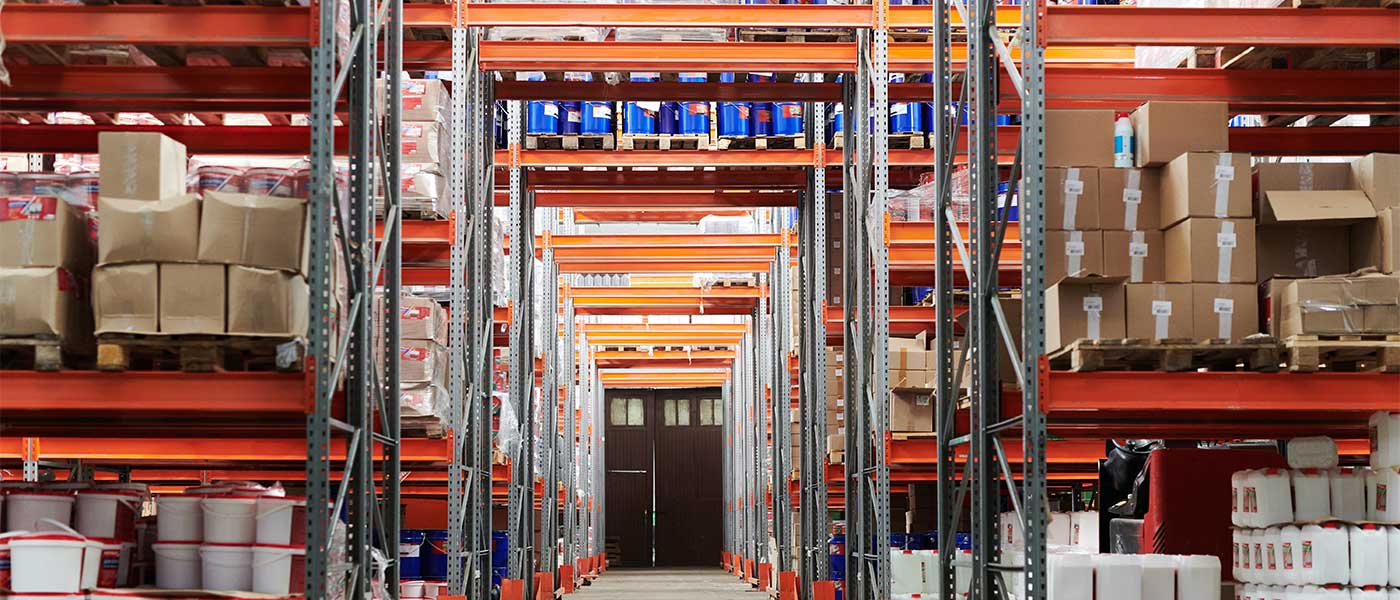China and the Philippines have always shared an amicable trade relationship. The former is one of the leading countries that the Philippines imports from. Filippino consumers’s growing preference for affordable, diverse, and high quality products and China’s manufacturing ecosystem present a golden opportunity for e-commerce sellers in the Philippines.
Navigating the intricate landscape of Chinese wholesale can be both challenging and rewarding for Filipino entrepreneurs seeking to source high-quality products at competitive prices.
This comprehensive guide offers you actionable industry insights, and strategies necessary tomake informed decisions, build strategic partnerships, and optimize your supply chain.
Understanding the Landscape
As one of the Philippines’ biggest trading partners and source of imports, understanding China’s complex B2B ecosystem is key for sourcing. Major trade pacts like the Joint Commission on Economic and Trade Cooperation and ASEAN Trade in Goods Agreement reinforce supply ties. For Filipino companies, China offers diversity across wholesale platforms and supplier categories.
Source: https://www.globaltimes.cn/page/202306/12923
When it comes to evaluating Chinese suppliers, considerations include cost, quality, scalability, reliability, and logistical movement of the consignment from Chinese ports to the Philippines. Visiting factories on the ground provides helpful understanding. Compliance with Philippine regulations is also important. Moreover, utilizing inspection and customs brokers reduces risk.
With immense diversity in China’s wholesale landscape, importing successfully requires market knowledge, research, permits, regulatory approval to sell in the Philippines and trusted partners. For Philippine businesses and enterprises, this enables tapping new inventory sources, achieving cost targets, and accelerating speed to market. The right trade opportunities to better serve rising market demand and appeal to customers domestically through expanded product selection and value.
Reception Of Chinese E-Commerce Products in the Philippines
Chinese e-commerce products have seen high demand within the Philippines due to their affordability and diversity. Major marketplaces like Shopee and Lazada provide access to Chinese suppliers, with mobile-first Filipinos embracing the convenience of shopping online. Popular categories include low-cost electronics, mobile accessories, home appliances, and fast fashion from China.
Social commerce also facilitates the purchase of Chinese goods through sellers on Facebook and TikTok. Trendy fashion pieces, utility items, storage items, accessories and unique gadgets attract Gen Z and millennial shoppers the most. The rise of platforms like TikTok, Chinese and Singapore-backed e-commerce platforms like Shopee and Lazada showcase the dept of influenceChinese-made e-commerce product has over the average Filippino shopper.
Overall, tapping into China’s manufacturing strengths allows Philippine e-commerce to meet demand for a budget-friendly and versatile catalog of products, the kind that customers in Philippines would love to buy. But building brand familiarity and assurances around Chinese suppliers is the key to gaining mainstream acceptance.
Goals for Your Sourcing Squad
When local e-commerce involves importing products from a l international supplier like China, navigating the complexities of sourcing can be difficult. This is where your sourcing squad must have effective strategies in play to oversee a smooth, efficient, and cost-effective procurement journey. Here’s how you go ahead with sourcing for your Philippine e-commerce business:
1. Bridging the Communication Gap
Effective communication is crucial for successful sourcing, particularly when dealing with international suppliers and overcoming language barriers. Make sure you centralize the process and have standard operations when you are reaching out and evaluating multiple suppliers., Make sure that you have individuals with multilingual fluency and cultural awareness who can establish clear communication channels and build strong relationships with suppliers, minimizing misunderstandings and ensuring accurate order fulfillment.
2. Complete Control of the Sourcing Journey
From initial supplier identification to product delivery, a dedicated team ensures oversight across every step of the process. This includes managing negotiations, product specifications, quality control, and logistics. Furthermore, make sure that you partner with a 3PL with trade service expertise and freight forwarding capabilities for moving freight from China to the Philippines. This way, you outsource intricate customs regulations and complex paperwork, minimizing delays and ensuring compliance. Partnering with a 3PL that offers cross-border services allows you to focus on core business activities.
3. Negotiating the Best Deals
Skilled negotiators within your sourcing squad are great at securing the most favorable terms with suppliers. They possess industry knowledge, market research, and strong bargaining skills to achieve optimal pricing, delivery timelines, and payment terms. While negotiating deals, focus not only on pricing but also on standardizing the import volume such that you have larger shipments, frequent restocking and maintaining renewal contracts with the suppliers. This translates to significant cost savings and improved profitability for your business.
Beyond these core benefits, make sure that your sourcing squard has:
Specialized Expertise: The technical knowledge specific to your industry and the type of product you wish to import into the Philippines. This enables your team to source the most high-quality products and materials to sell to Philippine consumers..
Market Intelligence: They stay abreast of industry trends, emerging technologies, and potential sourcing opportunities, keeping your business ahead of the curve.
Risk Management: The team anticipates and mitigates potential risks associated with international trade, such as supplier disruptions, quality issues, and currency fluctuations.
Logistics Loophole: Mastering Delivery and Payment
For Filipino entrepreneurs whose supply chain relies on Chinese sourcing, cross-border logistics and import may be a complicated affair. However, with expert guidance and careful planning, Philippine businesses can overcome these hurdles. Let’s delve into the essential aspects of mastering delivery and payment, ensuring a smooth journey from Guangzhou to Manila.
1. Shipping Secrets: From Guangzhou to Manila, Hassle-Free
Documents and Permits:
- Commercial Invoice: Issued by the supplier, detailing product description, quantity, and value. Required for customs clearance and tax calculation.
- Packing List: Itemizes the contents of each shipment, ensuring accurate customs declaration.
- Bill of Lading: Issued by the carrier, serves as a contract of carriage and ownership document.
- Import Clearance Documents: May include import permits, licenses, and certificates specific to your product category.
Choosing the Right Shipping Method:
- Ocean Freight: Cost-effective for large volumes, but longer transit times. Consider Full Container Load (FCL) or Less-than-Container Load (LCL) options.
- Air Freight: Faster delivery for urgent shipments or smaller quantities, but more expensive.
- Express Courier: Fastest option, ideal for sensitive or high-value goods, but incurs the highest cost.
Additional Considerations:
- Customs Brokerage: Partnering with a licensed broker simplifies clearance procedures and minimizes potential delays.
- Cargo Insurance: Protects your goods against damage or loss during transit.
- Delivery Terms: Negotiate Incoterms (“International Commercial Terms”) to clarify responsibilities and costs associated with delivery.
2. Payment Pathways: Safe and Efficient Transactions without a Hitch
Secure Payment Methods:
- Letter of Credit (LC): Offers financial security for both parties through a bank guarantee. Suitable for high-value transactions.
- Escrow Services: Third-party platforms hold payments until goods are delivered and verified, ensuring peace of mind.
- Wire Transfer: Fast and secure, but requires trust in the supplier. Only use reputable partners.
Additional Recommendations:
- Credit Cards: Offer convenience and buyer protection for smaller transactions.
- Online Payment Gateways: Streamline transactions and provide buyer protection features.
- Negotiate Payment Terms: Secure favorable terms, such as partial payments upon order confirmation or product inspection.
Why Negotiation Matters in Cross-border sourcing from China
In any business venture, negotiation serves as the cornerstone of successful transactions. For Filipino enterprises venturing into new partnerships or sourcing endeavors, effective negotiation skills can unlock significant cost savings, secure favorable terms, and ultimately, propel business growth. Let’s explore why negotiation matters and delve into key strategies to empower Filipino entrepreneurs to confidently navigate the negotiation table.
1. Researching Fair Prices and Avoiding Rip-offs:
Before entering negotiations, thorough research is crucial. Identify industry benchmarks, analyze competitor pricing, and understand production costs associated with your desired product or service. Utilize online resources, industry reports, supplier marketplaces and consultations with trade experts to establish a clear understanding of fair market value. The standardization of a sourcing framework for you team helps you to counter unrealistic demands and avoid becoming victims of inflated costs.
2. Building Rapport: More Than Just Closing the Deal:
Negotiation is not merely about securing the best price; it’s about building mutually beneficial relationships. Treat your negotiating partner with respect and understanding. Actively listen to their concerns, ask clarifying questions, and demonstrate a genuine interest in their business. Remember, collaboration often yields far greater benefits than one-sided victories. Instead of looking at bulk discounts, focus on how to narrow down on multiple suppliers, ensure that you import large quantities of items periodically, and maintain continuity in your supply chain.
3. Saying the Right Things to Seal the Deal
Communication plays a crucial role in negotiation success. Be clear, concise, and direct in your requests. Prepare articulate arguments: highlight your company’s value proposition, emphasize potential long-term partnerships, and showcase your commitment to the deal. Use open-ended questions to elicit information and identify areas for compromise.
4. Ensuring You Get What You Pay For: Pre-Production Samples and Inspections
Verbal agreements and written contracts, while crucial, hold limitations. To minimize post-sale surprises, insist on pre-production samples that accurately reflect the agreed-upon specifications. This allows you to identify and address any discrepancies before mass production commences. Consider partnering with reputable inspection companies to verify product quality and adherence to safety standards. Invest in independent inspections, especially for larger orders or complex products.
5. Hiring Trusted Eyes: The Value of Third-Party Inspectors
While pre-production samples offer a valuable glimpse, thorough quality control often extends beyond initial inspections. For high-value transactions or intricate production processes, consider engaging third-party inspection services. These organizations, independent from both parties, offer an objective assessment of product quality, compliance with agreed-upon specifications, and adherence to ethical labor practices. This investment can ultimately save you time, money, and potential reputational damage.
Advanced Sourcing Strategies for Filipino Entrepreneurs
Beyond securing immediate transactions, building long-term partnerships, and leveraging technology in the sourcing journey is important. Let’s explore how you can elevate your sourcing journey:
1. Building Strategic Partnerships: Finding Reliable Long-Term Suppliers
Moving beyond transactional relationships, establishing strategic partnerships with key suppliers fosters mutual trust and fosters stability. This approach offers numerous benefits:
- Negotiating Power: Combined demand with other businesses strengthens your bargaining position, leading to potentially better pricing and terms.
- Product Innovation: Collaborative relationships with suppliers can lead to joint product development, customized solutions, and early access to emerging trends.
- Quality Assurance: Long-term partnerships incentivize suppliers to maintain consistent quality and prioritize your business needs.
Identifying Potential Partners:
- Industry Associations and Trade Shows: Network with fellow entrepreneurs and suppliers within your industry to discover potential partners.
- Online Sourcing Platforms: Utilize reputable platforms to connect with verified suppliers and manage your sourcing activities efficiently all under one roof.
- Referrals and Recommendations: Seek advice from trusted peers and industry experts for recommendations on reliable suppliers.
2. Embracing Innovation: Using Technology for a Smoother Journey
Incorporating technology into your sourcing process streamlines operations and unlocks valuable insights:
- Sourcing Platforms: Platforms like Locad offer comprehensive features for supplier discovery, quotation comparison, order management, and communication, thus streamlining the sourcing entire process.
- Data Analytics: Utilize data-driven platforms to analyze historical purchase data, identify cost-saving opportunities, and predict future demand, optimizing your sourcing decisions.
Investing in Technology:
- Assess your specific needs and budget: Choose technology solutions that align with your business size, industry, and sourcing volume.
- Seek expert guidance: Consult with technology providers or industry experts to identify the most suitable solutions for your requirements.
- Consider ongoing training: Equip your team with the skills to effectively utilize chosen technology platforms and maximize their benefits.
3. Partnering with an Integrated Logistics Provider
Having multiple partners for different logistical requirement involves multiple tools, processes, and complex handovers. To streamline processes, storage, infrastructure, and resources in a cost-effective way, Philippine e-commerce entrepreneurs must look at unifying cross-border sourcing, mid-mile, and last mile through one logistics provider.
Freight Forwarding: Partner with a 3PL who will help you move your shipments from seller’s drop-off point in China to the destination warehouse/retail outlets for last-mile.
Trade Services: For entities in the Philippines who do not have a local business presence, partner with a 3PL that offers trade services like IoR, SoR, and product registration to simplify sales.
Custom Clearance: While importing from China into the Philippines, avoid shipment delays by partnering with a 3PL that helps you acquire custom clearance and manage your shipment paperwork for your business.
Automate your mid-mile journey:
24×7 Transparency: When you source from suppliers based out of China, invest in a cloud-run Order Management System that lets you track the journey of your consignments.
Reduce Manual Efforts: Make sure that your Order management system can automate tasks like scheduling shipments and moving them to warehouses easily without having to start from scratch.
Wholesome Integration: Look for a 3PL provider who can easily integrate the warehouses, carrier partners, and the OMS with your preferred channels to have a 360-degree view of inventory levels and give you ample time to schedule pick-ups of your products from China.
Conclusion
Sourcing from China will give your business the much-needed advantage to compete with different players while catering to the demand of Filippino shoppers. By effectively implementing the outlined strategies, you will gain the ability to establish strong supplier relationships, optimize your sourcing processes, and leverage technology to stay on top of your sourced orders. Remember, successful sourcing goes beyond securing the best price; it involves fostering long-term partnerships, embracing innovation, and adhering to ethical sourcing practices.
Experience fulfillment by Locad today!
What are the 7 steps of strategic sourcing?
The 7 steps of strategic sourcing typically include: categorize needs, research & qualify suppliers, build partnerships, develop sourcing strategy, negotiate & award contracts, implement & manage contracts, and measure & improve process.
What factors must the company consider for procurement from China?
Key factors for Chinese procurement include supplier reliability, product quality, price competitiveness, intellectual property protection, compliance with regulations, cultural considerations, and logistical efficiency.
What are the popular techniques of strategic sourcing?
Popular strategic sourcing techniques include value analysis, total cost of ownership (TCO) analysis, supplier scorecards, collaborative forecasting and replenishment (CFRe), and competitive bidding.
What is the strategic sourcing life cycle?
The strategic sourcing life cycle consists of 5 stages: planning, sourcing, contracting, managing, and improving.
How many steps are there in the strategic sourcing process?
While the number of steps can vary depending on the source, 5-7 stages are commonly recognized as the core of the strategic sourcing process.











